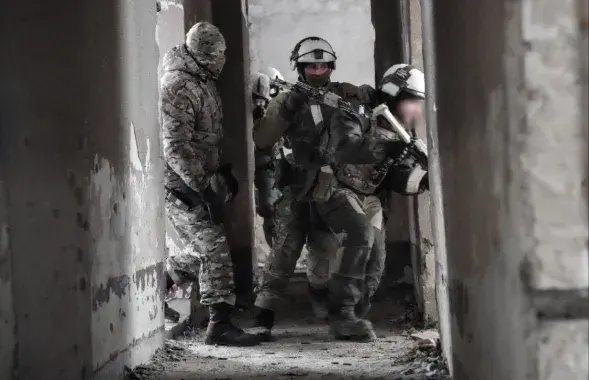UN didn’t dispatch Belarusian pilots to Somalia
In Belarus, there are two companies -- Transaviaexport and Gomelavia -- that usually fly cargo for peace-making operations. An officer on duty at Gomelavia told our radio where their crews are dispatched.
“We don’t really send them to hot spots. They normally fly to the areas that are not very hot like Afghanistan and UAE. It is rather quiet there,” he said.
While UAE is a peaceful country (even Lukashenka flies there), Somalia is a war-torn country.
The Belarus president said he was not aware that our citizens were in Mogadishu. However, under the law which regulates the deployment of the Belarusian citizens on peace-making missions abroad, the president only has the right to send flight crews to hot spots. To this, Gomelavia responded as follows:
“Commercial flights are performed in the following way. We receive an order from a respected organization, e.g. UN to fly a humanitarian cargo. It is then approved by relevant agencies, loaded and transported.
It is just a routine operation just like at any transport agency. Planes fly cargo around the world the same way as trucks carry loads to Europe. It is not the president’s job to put his signature on those documents,” Gomelavia’s spokesman said.
Perhaps, the United Nations is to blame for sending our pilots to Somalia? We decided to ask the UN Office in Belarus.
“When violence increased in Somalia, the UN Security Council proposed the Secretary General to review within six months the issue of deploying a UN peace-making mission over there.
Regarding that doomed flight, the contract was signed between Transaviaexport and the African Union. Although this company is a UN official cargo carrier, the United Nations did not hire Transavaexport for this mission,” said a spokesperson for the UN Office in Belarus.
By and large, the mission was sanctioned by the United Nations. But, in purely technical terms, UN was not involved in the deal. So, it appears that companies decide themselves where they are flying. Pilots in Belarus say that they are forced to risk their lives due to low pay at home.
In an Internet forum, we found a comment by a Russian pilot regarding that flight to Somali. He wrote: “I am also employed with an air company, flying Ilyushin-76. This contract was proposed to us, too. We sent a request to the foreign ministry, which officially responded that they were strongly discouraging us from flying to Somalia. This letter saved the lives of our pilots. Unfortunately, it did not save others.”
Belarusians used to get into trouble in the past. In 1997, two helicopter pilots were captured in Sierra Leone. In 1998, 5 Belarus pilots died when their Antonov-12 crashed in Angola.
In 2003, a crew working for Gomelavia was stranded for over one month in Nigeria. In 2004, four Belarusian pilots were detained for one week in Ivory Cost. In 2005, 10 Belarusians died in the Ilyushin-76 crash in Tanzania.
Although all the aircraft of Transaviaexport are not redirected to European destinations, Georgi Egizaran, the company’s deputy director, says the Belarusian crews are still needed in hot spots.
“We fly to those areas like Afghanistan, Iraq and Somalia. Unfortunately, our planes are needed there.”
It looks like no more Belarusian crews will fly to Somalia. However, Belarusian air companies are hardly to refuse from lucrative contracts, involving the shipping of humanitarian cargo to dangerous countries.
Photo by photo.bymedia.net

















